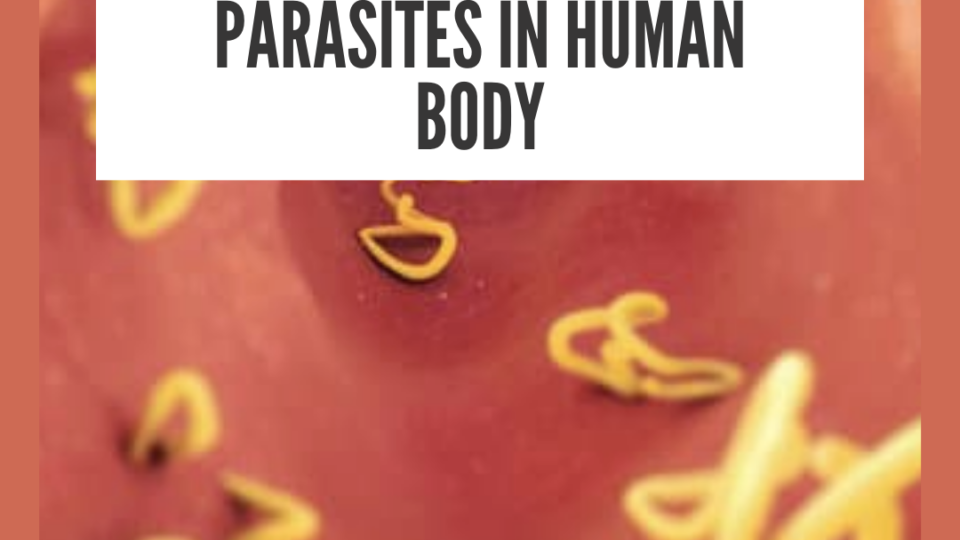
Parasites in human body
Symptoms:
- fatigue;
- dizziness;
- painful muscles;
- painful joints;
- mucus;
- parsites;
- rash;
- pimples;
- flaky skin;
- itchy skin;
- depression;
- mood disorders;
- irritability;
- sleep disorders;
- memory gaps;
- gnashing of teeth;
- twitching during sleep;
- snoring;
- headache;
- baldness;
- dandruff;
- runny nose;
- flaking nails;
- breaking nails;
- constipation;
- vomiting;
- flatulence;
- lack of menstruation;
- irregular menstruation;
Causes:
The presence of parasites is not immediately noticeable because the health problems they cause are similar to the common cold, flu, rheumatism, arthritis, indigestion and other symptoms.
As a result of parasite activity, the following may develop: allergies, anemia, eczema, hepatitis, cardiovascular diseases (myocarditis, including stroke and myocardial infarction), migraine, pneumonia, scoliosis, dysbacteriosis, multiple sclerosis, diseases of all organs of the gastrointestinal tract. Every third person (including children) in America has diseases caused by parasites (there are hundreds of them). Recently, it has been suggested that parasites play a leading role in the development of cancer. Diathesis and allergies in infants are thought to be associated with the transmission of parasites from mother to child, often during pregnancy. Therefore, the body must be cleared of parasites before pregnancy.
Treatment:
When parasites occupy about 10% of the body, the body is no longer able to excrete all of their toxic feces. Blood dissipates the toxic remnants of parasite activity into the body and stores them, depending on the person, in the lungs, stomach, mammary gland or elsewhere. It is believed that when parasites occupy 40% of the body, cancer will develop.
Specialists have proven that any treatment (medication, folk medicine or other methods) will not work in the presence of parasites. Above all, parasites must be destroyed. However, they are difficult to detect in the laboratory because the assays are very expensive or of low certainty. In America, for example, 85-95% of adults have parasites and they don’t know it. Parasites have been detected in the intestine in 90% of cases.
Parasites are well controlled by naturally occurring antiparasitic agents, which are easiest for the body to ingest with food. Include in the menu the appropriate garden and fruits, berries, spices and herbs used in cooking from ancient times. The most commonly used tansy, mugwort, cloves, walnut leaves – when used together, they can kill 100 species of parasites.
Nutrition suggestions:
Lavender, peppermint, berberis, artichokes, pomegranates, pumpkins (pumpkin seeds immobilize the roundworms and help expel them from the gut), walnuts, grapefruit, turmeric (affects parasites with four substances), garlic, marigold, dandelion, ginger (the last four plants are particularly strong, destroying even the parasite’s eggs and larvae). Cold pressed vegetable oils have strong antiparasitic properties. Walnut, alum, grape seed, cedar, flax and apricot oils are particularly strong. The listed natural remedies can be used in the preparation of foods and salads. Extracts based on oil, honey, vodka and wine (alcohol itself helps to expel parasites) work well. It is noted that the doses required to expel parasites must be high enough and can sometimes cause nausea. The Japanese do not become infected with parasites when they eat raw fish because they eat pickled ginger. Practitioners have found that parasites are more common in people who do not like and do not consume the above herbs, spices or foods.
Explanation:
Almost 90% of people have parasitic organisms living in their body. However, this topic has found dangerously little sound space. Our old ancestors knew and cleansed their body periodically with various plants and products obtained from their home yard, such as wormwood, pumpkin seeds, garlic, dandelion, etc. Today, people know very few about cleansing their body, but this ignorance can cause a lot of damage.
There can be up to 100 species of parasites in one person at a time. People have the most helminths. Helminths are divided into roundworms (nematodes), tapeworms (cestodes) and also sucking worms. In humans, ascarids, capercaillies, pinworms, Trichinella, lamps, breadths, echinococci, dicotyledons and liver-dicotyledons are also more common in humans. Parasites living in the body can range in size from micrometers to several meters.
Parasites live in the lungs, muscles, joints, blood, lymph, brain, liver, skin, even eyes, mostly in the intestine, especially in the small intestine, where the main absorption of nutrients takes place. Parasites multiply at a catastrophic rate and can live in the body for decades. Some of them are so well adapted that you do not feel their presence at all. Even if the rules of personal hygiene is strictly followed, you drink only boiled water, you wash fruit thoroughly, you do not eat raw, lightly salted or lightly fried meat and fish, etc., there is still a high risk of infection every day.
Parasites eat the food that enters the body, as well as the body’s cells, tissues, blood and waste products. They primarily consume essential nutrients for humans (including vitamins, trace elements, etc.). This results in a deficiency of necessary substances in the body, a significant decrease in the intake of proteins, fats, vitamins and minerals, damage to the lymph nodes, intestines, liver, bile ducts, skeletal muscles, central nervous system, weakened immune system, disrupted self-medication processes.